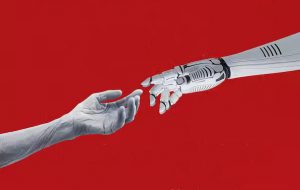The Economist speculates about the phone of the future
“To imagine the phone of the future is also to imagine the future of consumer technology, and its personal and social impact. What mobile phones will look like in a year or two is easy to guess: they will be slimmer and probably will let you watch television on the move. But what about ten or 15 years from now?”
“The chances are that phones will not only look very different—they may not even be seen. They may be hidden in jewellery or accessories, or even embedded in the body. They will undoubtedly have a host of additional features and novel uses, and users will probably interact with them in new ways, too. And even if they are still called ‘phones’—a word derived from the Greek word for voice—making voice calls may no longer be their primary function.”
The wide-ranging article, which quotes Donald Norman, Bruce Sterling, and Bruno Giussani among others, acknowledges a crucial foresight problem: “Although extrapolating from today’s phones by following technology trends can provide some clues about their future direction, the danger with this approach is that it risks overlooking discontinuities in their evolution.”
A more behaviour-centred approach to foresight might help: “No doubt other new functions will be incorporated into phones. But which ones? Given their uniquely personal nature—some people feel naked without their handsets—it seems likely that they might subsume the other two items that are generally carried everywhere, namely wallets and keys.”
Another human-centred angle is to focus on the social consequences of future phones. “Social factors play a crucial role in determining which technologies end up being adopted, and how they are used.” Insights by Max Hunter, Pierre de Vries and Donald Norman are cited on this topic.





[…] Anche l’Economist s’interroga sul futuro del telefono. Nei prossimi due anni essi saranno verosimilmente più sottili e dotati di TV. Ma tra quindici anni potrebbero apparire molto diversi, nascosti in gioielli e accessori, o anche implementati nel corpo. Comunque, un problema importante sarà adottare un approccio centrato sull’utente per prevedere il futuro. […]